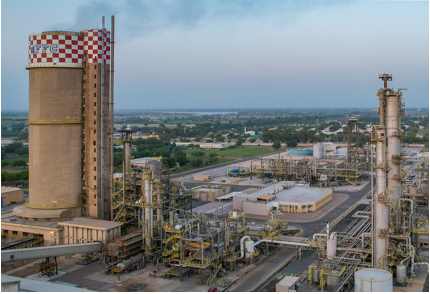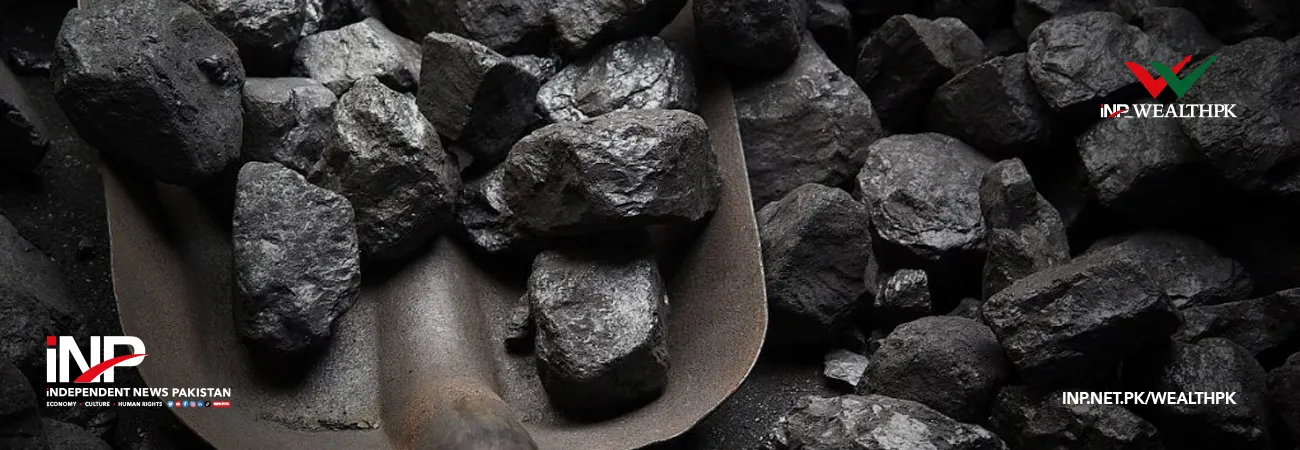i INP-WEALTHPK
Shujauddin Qureshi
Fauji Fertilizer Company’s (FFC) landmark plan to produce fertilizer using Thar coal, under a 5 to 6-year public-private partnership (PPP), has attracted interest from both local and international investors. The project is seen as vital to enhancing the country’s food security, energy diversification, and economic resilience.

“Utilization of Thar coal for fertilizer manufacturing is a key step in addressing the energy gap arising with depleting natural gas reserves in Pakistan,” Khawaja Nizam ud Din Mir, Manager Business Development Fauji Fertilizer Company Ltd, told WealthPK.
He said FFC was actively pursuing the development of huge Thar coal reserves through clean technologies for long-term food security and energy sovereignty in the country.
Even though the government claims that the electricity produced from Thar coal is cheaper than that generated from other fossil fuels, production of electricity through low-quality lignite coal has sparked growing environmental concerns, as Pakistan faces increasing pressure to honor its international commitments to reduce reliance on coal-based energy.
In 2021, Pakistan announced a moratorium on new coal-fired power plants and committed to increasing the share of renewable energy in its national grid to 60 percent by 2030. However, utilizing Thar’s lignite coal for fertilizer production presents a more environmentally responsible alternative, offering Pakistan a pathway to reduce emissions while still leveraging its indigenous energy resources.
Earlier, the Sindh government announced that through its successful public-private partnership (PPP) model, the provincial energy department will support private companies in establishing fertilizer plants near the coal mines in Tharparkar. Once operational, this project will supply affordable, high-quality fertilizer to farmers, helping to eliminate shortages and increase agricultural productivity.
With a capacity of about 700,000 tons per annum of urea, the fertilizer plant will employ the globally renowned and proven technology of coal gasification to produce the fertilizer, said Nizam ud Din Mir. Pakistan’s annual demand for urea, a critical agricultural input, currently stands at approximately 6.5 to 6.9 million metric tons.
To meet this demand, the local fertilizer manufacturers collectively produce around 6.2 to 6.3 million metric tons of urea each year, making the country largely self-sufficient in urea production. The major producers in the country include Fauji Fertilizer Company (FFC), Engro Fertilizers, Fatima Fertilizer, Agritech, and Fauji Fertilizer Bin Qasim Ltd (FFBL).
Despite this near self-sufficiency, the country occasionally faces short-term shortages, particularly during the peak cultivation seasons. These shortages are often caused by disruptions in natural gas supply to the fertilizer plants, unscheduled maintenance shutdowns, or logistical constraints.
To cover the gap and stabilize market supply, the government sometimes imports urea, with import volumes typically ranging from 200,000 to 400,000 metric tons annually. During the period of urea shortage, profiteers often exploit the situation by hoarding supplies to drive up prices.
With agriculture being the backbone of Pakistan’s economy, ensuring a consistent and affordable supply of urea remains a top priority for policymakers. In this context, the debate over alternative uses of domestic lignite coal, such as producing fertilizer instead of generating electricity, is gaining traction, as it may help reduce environmental damage while supporting local food security.
Globally, many countries have successfully produced urea and other fertilizers using coal, providing a roadmap for Pakistan. For instance, Pakistan’s longstanding economic partner, China, which was once dependent on natural gas for urea production, leveraged its abundant coal reserves to transform coal into ammonia and subsequently urea through the coal gasification technology.
This has enabled China to become one of the world’s leading urea producers, ensuring food security for its vast population and serving the global markets. India has also recently revived fertilizer plants centered on coal gasification and hybrid feedstocks to reduce its import bills and bolster self-sufficiency.
Furthermore, companies like Dakota Gasification Company in the US have converted lignite coal into ammonia, urea, and ammonium sulfate, reporting both economic feasibility and high nutrient-value outputs.
The technological basis of this transformation lies in coal gasification, a process that converts lignite into synthesis gas, which is further processed to produce ammonia, the precursor for urea. Thar coal, with its favorable ash content and gasification properties, is well-suited for such applications, as recent studies corroborate.
Test results from laboratories such as those in South Africa have indicated high tar yields and suitable chemical properties for fertilizer production despite a moderately higher sulfur content, which can be managed during processing, experts say.
“Land and water allocation and infrastructure development are required at the project site for timely implementation of the fertilizer project,” said Khawaja Nizam ud Din Mir. He said the company is currently in the process of financial close, and actively engaging with foreign investors for this landmark project.
Credit: INP-WealthPk






